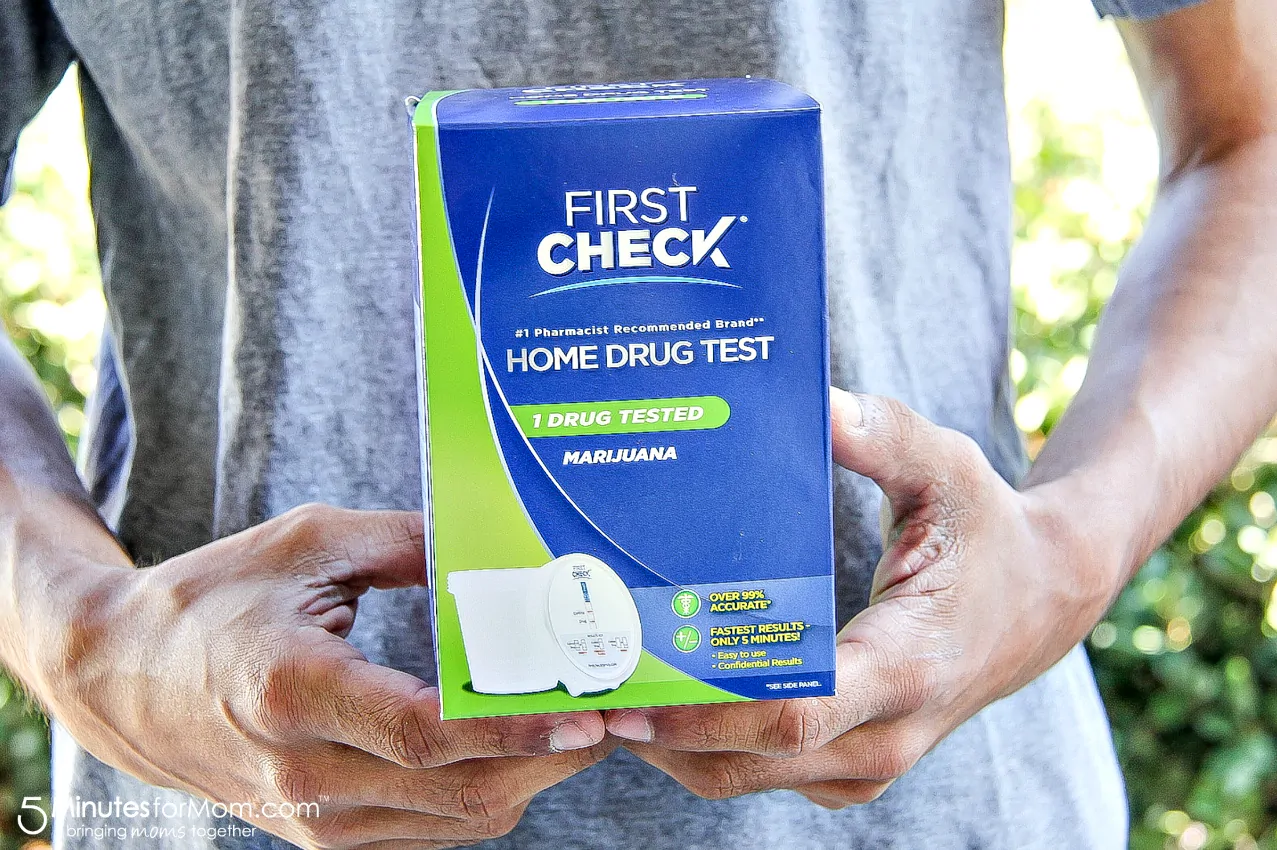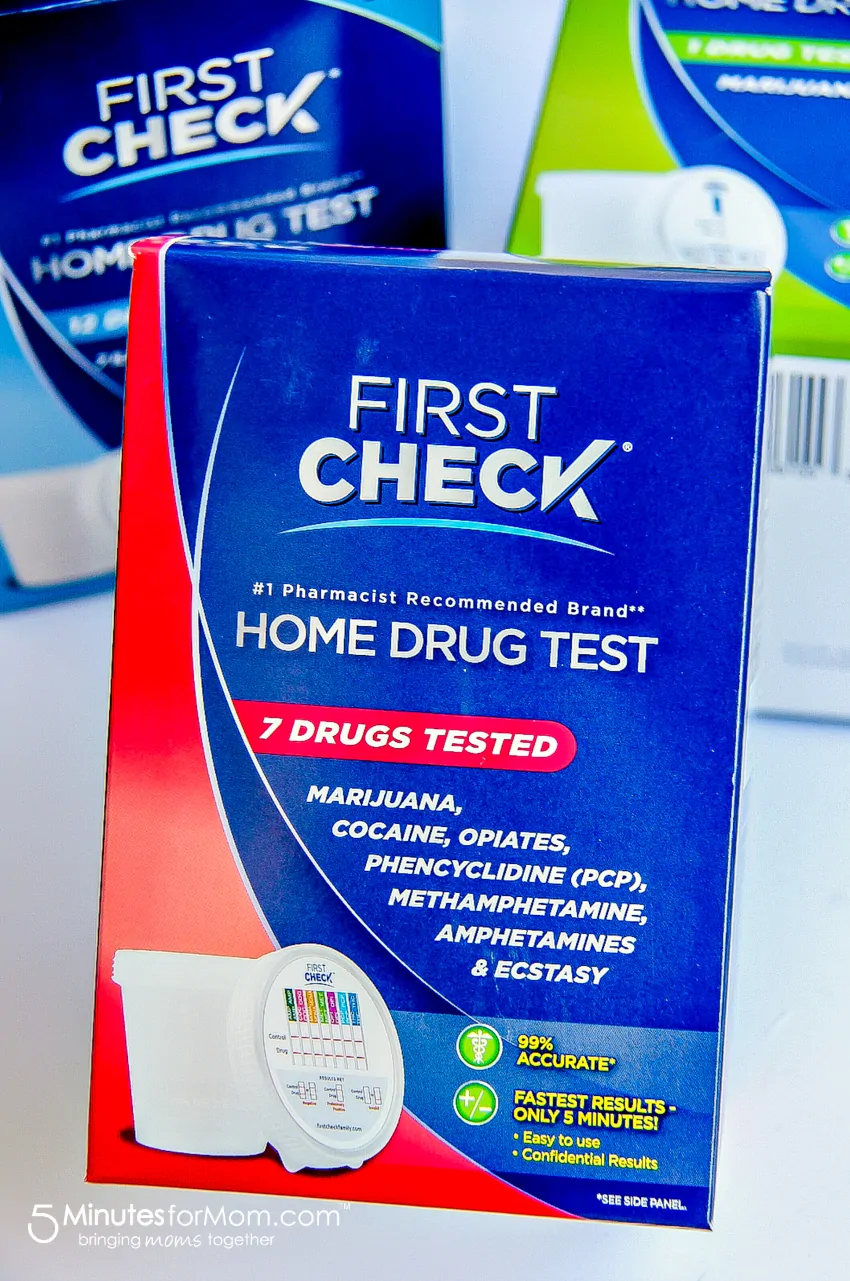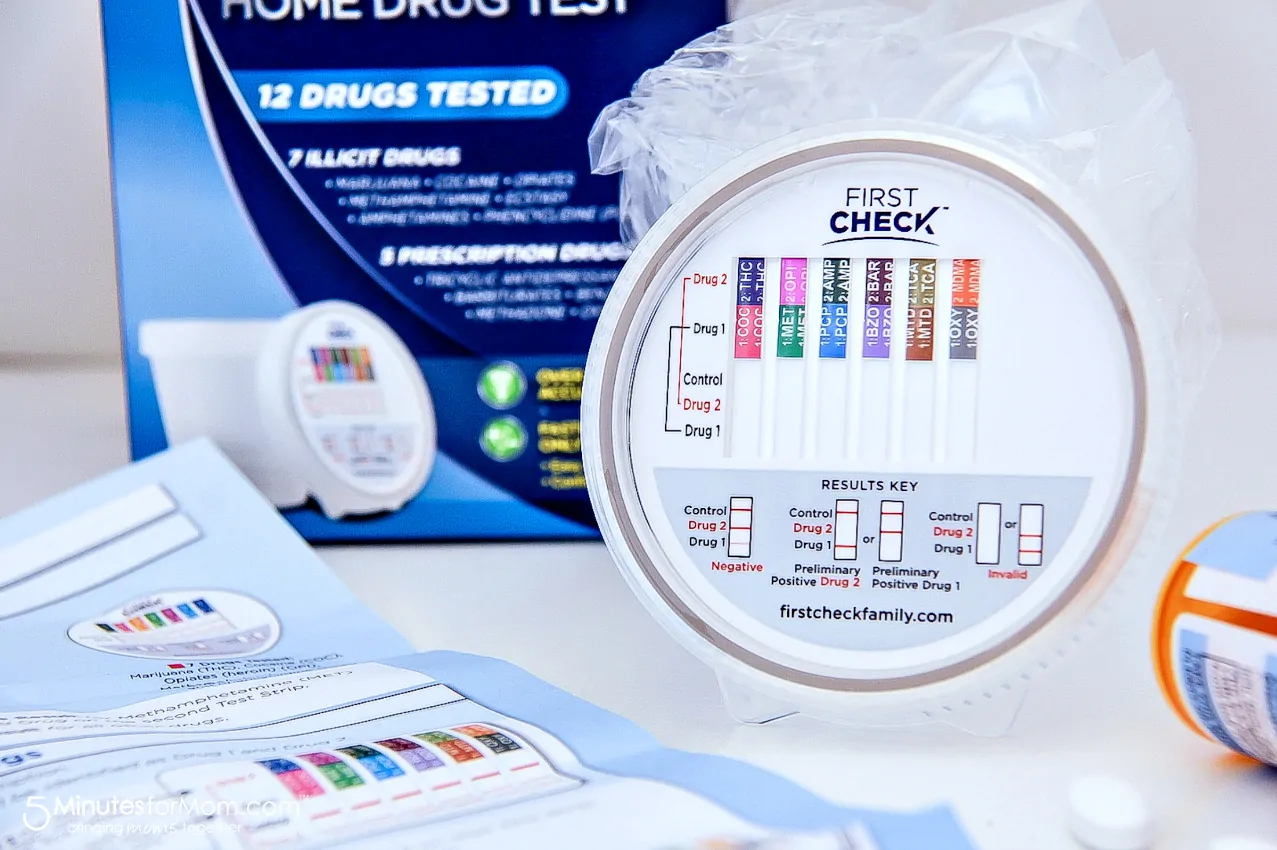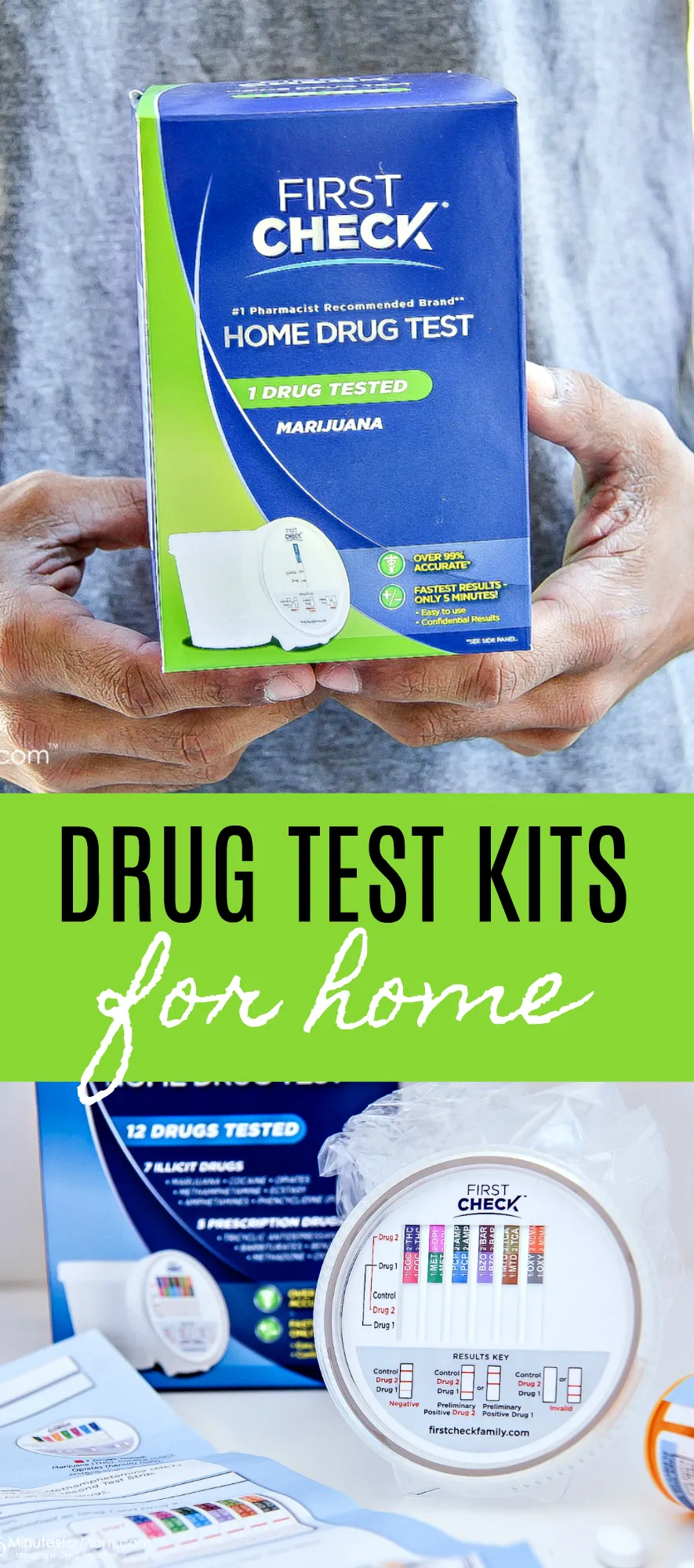This post may contain affiliate links. Read my disclosure policy here.
Tonya here… If you have children between middle school and college age, and are worried about peer pressure from other kids, teammates, or classmates when it comes to drugs, then keep reading for some tips on helping your kids stay drug-free. Thank you to First Check for sponsoring this post. All opinions are my own.
My oldest son is 21, and my youngest two have just started middle school. I’ve been down that road of high school sports, drug-testing, and peer pressure from friends. Thankfully the youngest two haven’t reached that stage yet, but I know it’s coming, and it’s a subject we talk about often.
Just last week we discussed drugs with their pediatrician. I think it’s so great that a lot of schools have implemented Red Ribbon Week, and talk to the students about the importance of saying ‘NO’ and staying drug-free.
Here are some ways you can help your kids say no to drugs:
- Listen to your kids, and don’t be afraid to talk about the tough topics… because what they don’t hear from you, they’ll learn about from their peers.
- Stay involved in your kids’ lives – know their friends, their friends parents, where your kids hang out.
- Be a good role model. They are more likely to model your behavior than your words, so stay clear of drugs, which includes not over-indulging in substances like alcohol either.
- Teach them how to say no, and how to get out of situations where they are feeling pressure from their peers.
- Have their doctor talk to them about the effects of drugs, and ensure their school is involved in red ribbon week and drug awareness campaigns.
- Keep drug test kits at home. These are a great preventative measure. If kids know they can be tested at anytime it will help offer them an “out” if pressured by peers to use drugs.
- Stay up-to-date. Just like we need to know the slang terms and acronyms our kids are using when texting, often drugs are called by slang terms as well. The folks at First Check have put together a fantastic resource listing slang terms.
First Check drug test kits detect up to 12 of the most commonly abused drugs including 7 illicit ‘street drugs’ and 5 prescription drugs.
Drugs tested include:
- Marijuana
- Cocaine
- Opiates
- Methamphetamine
- Ecstasy
- Amphetamines
- Phencyclidine (PCP)
- Tricyclic antidepressants
- Barbiturates
- Benzodiazepines
- Methadone
- Oxycodone
If you’re wondering how to talk to your kids when introducing the idea of using these drug test kits, you may want to explain that you’re doing them a favor. You’re providing them with an “out” if their friends offer them drugs. Since they can now say they can’t even use a little because their parents give them drug tests, it lets them pass the blame on to their parents with a rock-solid answer.
Home drug testing can be thought of as a report card or verification method that shows how successfully a kid is at saying no to drugs. You can also explain that it’s common for sports teams and employers to give random drug tests, so you’re getting them prepared for the future.
First Check home drug tests can be purchased in the pharmacy section at a variety of retailers including Amazon.com, Drugstore.com, Walmart, CVS, Rite Aid, Target, Kmart, Kroger, Meijer, Giant Eagle, Stop & Shop, Giant and ShopKo. Visit the First Check website to find out where you can purchase these drug test kits. They are easy to use, have 99% accuracy, offer free confirmatory mail-in lab testing, and give you results in 5 minutes in the privacy of your own home.
Giveaway
If you’d like to win a set of First Check kits, please leave us a comment sharing any tips or suggestions you have for other parents in talking to their kids about drugs or ways you try to help your kids stay away from drugs.
Then complete your entry using the form below.
The prize will include a 2 Drug kit, 7 Drug kit and 12 Drug kit with a total retail value of approximately $90. Prizing is open to the US only.
Pin this post for later:
Disclosure: This post is sponsored, so extra thanks for reading and sharing.
Written by Tonya Staab, contributor at 5 Minutes for Mom
Talk with us: @5minutesformom and Facebook.com/5minutesformom
Pin with us at pinterest.com/5minutesformom













Julie Terry says
Open honest conversations.
Amber Hites says
The Dare program and honest conversations are good starts!
Surinder gurm says
If they can’t talk to you for whatever reason, reach out to uncles, aunts or older cousins.
golden storm says
be truthful about it and lead by example
Leela says
Just telling them the truth on how dangerous they are.
KellyPC says
I didn’t try drugs until I was an adult & I never smoked & still don’t. I think it was partially because I felt I could talk to my mom about anything without getting in trouble. I had a lot of drunken teenage escapades though. My poor parents.
Cheryl Chervitz says
Make sure they know they can come to you and talk about drugs. Don’t bury your head about this subject.
Meghan says
Have real conversations with them and stay involved.
Ashly Lower says
Explain to them the danger of drugs! Also, if you drug test you can tell them it is also so they have an easy excuse to tell friends no. Saying “My parents drug test me” will probably result in them leaving them alone quicker than “I don’t want to”
Kathy B. says
Set a good example, be aware of where they go and who they know, talk, talk, talk.
Katie Smith says
Definitely get to know their friends and also always keep meds LOCKED up!
Stacie Humphrey says
I think the best thing we can do is have a good relationship with your child and be involved in their life. Talk to them every day.
Rachel says
I think that having a open line of communication and talking about the dangers of drugs is very important.
Julie Bickham says
I think it’s best to let your child know that you trust them until they give you a reason not to. Being open and honest is the best way.
Kimberly Singh says
Make sure to talk to your children about the dangers of drugs often.
Sandy H says
I have a lock on my medicine cabinet that I lock when I have little ones over.
Sully Sully says
Get to know your kid’s friends and be welcoming